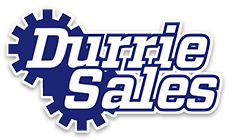If you are outsourcing sales to an industrial manufacturers’ representative (IMR), one of your top considerations has to be Return on Investment or ROI.
The good news: You have more influence on your IMR’s success than you think.
Whether it’s a brand-new relationship or a longtime contract, there are things you can do that make it much easier for your manufacturer’s rep to provide the maximum value to your organization – and your bottom line.
A successful relationship with an IMR is all about setting expectations, sharing information, documenting what works, and getting out of the way. When you make these four investments, you stand the best chance of getting what you are looking for in a partnership. Here’s how you do it.
1. Set Clear Expectations
You have expectations. So does your IMR.
Start off on the right foot by aligning expectations internally and externally. Before your IMR places a call, sends an email, or visits a customer, sit down, and set crystal-clear expectations. Manufacturers should set clear expectations for IMRs in areas such as:
- Input on sales projections and goals
- Go to market strategy
- Knowledge of your product line
- Quoting process
- Customer set up (how the IMR onboards new customers)
- Support of your promotions
- Marketing funds available
- Training distributors and end-users on your product line
- Lead generation from the manufacturer
- Lead follow up
- Breadth and depth of sales presentations
It’s equally important to set clear expectations on what the IMR expects from their manufacturing clients in areas like:
- Education on your products, particularly top selling items
- Product pricing and discount structures
- Commission rates
- Anticipated shipping times
- Promotions for distributors
- Feedback on IMR performance
- Frequency and candidness of communication
- Frequency of sales meetings
- Details about your market share
- Information on your competitors
- Details about your house accounts or legacy accounts
Good sales reps are good listeners, so get the most from your relationship from the start by encouraging two-way communication between your IMR and your in-house team that is clear, candid, and frequent. Relationships require care and attention – and the more your IMRs and in-house team can work as partners toward the same goal, the better your results will be.
2. Be Vigilant in Sharing Sales Collateral
One thing your IMR must have to be successful is sales collateral. We’re talking product brochures, detailed product spec sheets, up-to-date and comprehensive price lists, product SKUs, answers to frequently asked questions, warranty information, use cases, case studies, and plenty more.
To put it plainly, any manufacturer who makes IMRs beg and struggle for sales collateral is holding back that IMRs success … and their own growth. The same goes for reports on sales history per customer and customer lists. You must supply these for your IMR to be successful.
Make it as easy as possible for reps to get everything they need to make the sale. Ideally, you should host your product information in a searchable product information management system (PIM). You should also aim to make this collateral available 24/7, from any location and on any device. When you keep your sales collateral and content comprehensive, up to date, and easily accessible, your IMR will use it to drive the kind of ROI you are after.
3. Document What Works and What Does Not
The best ROI is predictable—and repeatable.
And the best way to generate this kind of ROI from your IMR is to measure what works and then share your findings.
What you end up with is best practices that you and your IMR agree are proven to work.
Start the process by discovering what your IMR has done before, during, and after deals to generate results. Document these activities and review them at regular intervals to uncover what works—and what doesn’t. Once a quarter, sit down with your IMR to answer five probing but vital questions:
- What are we both doing correctly that we should continue doing?
- What are we both doing incorrectly that we should stop doing?
- What are we both not doing that we should start doing?
- What’s holding back sales?
- What support is needed from the manufacturer?
Documenting what works sets your company and your IMR up for success, while also uncovering best practices you should implement with all sales teams.
4. Get Out of the Way
The best IMR reps are self-starters who need minimal handholding: They already have established relationships with distributors and end-users, a proven sales process with extensive knowledge of your target industry.
What they need from you is trust, sales enablement materials, and zero micromanaging.
The best reps deliver the greatest ROI when you mutually set expectations, give them the tools to do their job, then step out of their way. They maximize your sales without increasing your expenses when you interfere as little as possible.
What “getting out of their way” looks like in the real world:
- You trust your IMR’s judgment
- You give them permission to exercise initiative
- You expect them to use their intuition
- You allow them to be flexible in their approach to markets and territories
- You trust them to work well with distributors and prospects in a way that reflects positively on your brand
- You expect them to come to you for clarification, problem-solving and support
Setting the Stage for Maximum ROI and Value From Your IMR
The good news about this list? It not only serves as your checklist for improving your ROI, but also helps you improve the overall value of your relationship with your IMR.
Increased attention from distributors and end-users? A better brand reputation? Improved customer satisfaction? When you work with independent sales reps who are accountable for results, knowledgeable about your business, dedicated to the improvement, and ready to sell – you might be surprised at what’s possible.
Want to learn more? Check out our comprehensive guide, Outsourcing Sales with an IMR: Manufacturers’ Guide.


